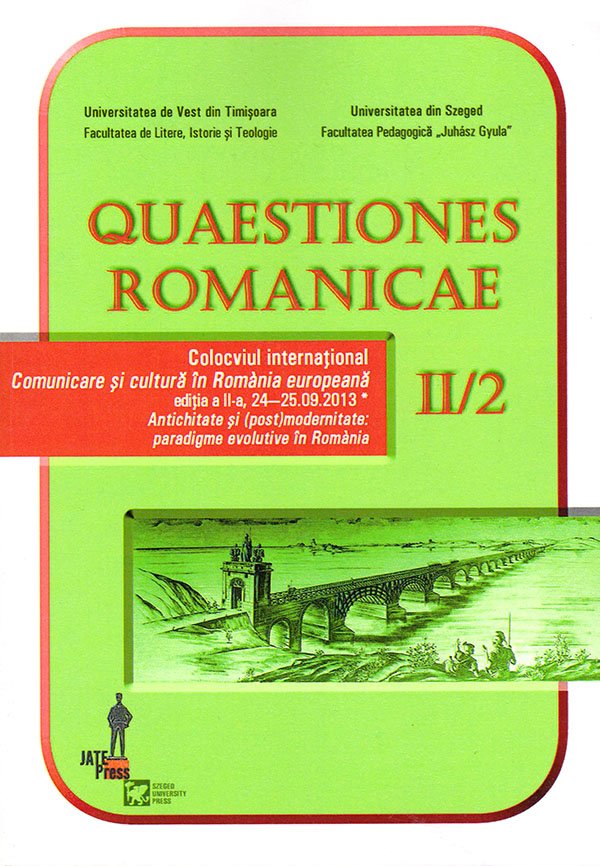Gigi Proietti, Giocoliere (Post)Moderno delle Parole
Abstract: (Gigi Proietti, Words’ (Post) Modern Juggler) The paper begins with a brief introspection into the meaning that the comedy and the satire had for the ancient Greece theatre and how the Greek theatrical heritage had been transmitted to the Latin theatre, becoming one of the most grand expressions on the ancient Rome. Strongly oriented in the direction of entertainment, the Roman theatre with its highly regarded mockeries of the popular comedy, was fully part of what the ancient Romans used to call panem et circenses (“bread and circus games”), a true instrument in the hand of the governors in order to have the popular consent guaranteed. Further on the intention is to prove, from this point of view, the similarity of the ancient Greek and Roman era with the (post)modern times. Like in those days, in our modern time, the people’s own voice, often critical and satirical towards the power exponents, manages to make itself heard in the very places of the performance. Thus the paper intends to present the actor Gigi Proietti as a genuine great (post)modern juggler with words and, not last, with gestures. The goal is to illustrate, also with the help of some short videos, how the comical and satirical charge of his sketches and jokes remains unspoiled and how the mythical Roman One Man Show by definition, always present within the national artistic panorama, becomes, especially through the character of the cynical and blustering Roman, for the city of Rome, where he has been born, and for the whole nation, an exceptional social inspirer.
Keywords: laugh, satire, entertainment, gesture, Roman.
Riassunto: L’intervento inizia con una breve introspezione nel significato che la commedia e la satira ha avuto nel teatro della Grecia classica e come l’eredità teatrale greca viene tramandata al teatro latino, diventando una delle più grandi espressioni della Roma antica. Fortemente caratterizzato nella direzione dell’intrattenimento, il teatro romano con le apprezzatissime farse della commedia popolare, faceva pienamente parte di quello che gli antichi romani chiamavano panem et circenses (“pane e giochi del circo”), vero strumento in mano a chi governava per assicurarsi il consenso popolare. Si vuole dimostrare, in seguito, da questo punto di vista, la similarità dell’epoca dell’antichità greco-romana a quella (post)moderna. Come allora, nei tempi moderni, il popolo riesce ad avere la propria voce, tante volte critica e satirica nei confronti del potere, proprio nei luoghi dello spettacolo. In tal senso l’intervento intende a presentare l’attore Gigi Proietti come un vero e proprio gran giocoliere (post)moderno delle parole e, non nell’ultimo luogo, dei gesti. Si mira ad illustrare, anche tramite alcuni brevi video, come rimane inalterata la carica comica e satirica delle sue scenette e battute e come lo storico One Man Show romano per definizione, sempre presente nel panorama artistico nazionale, diventa, soprattutto tramite il suo personaggio di romano cinico e sbruffone, per l’urbe di Roma, la sua città natale, e per l’intera nazione, un ispiratore sociale di eccezione.
Parole-chiave: risata, satira, intrattenimento, gesto, romano.
